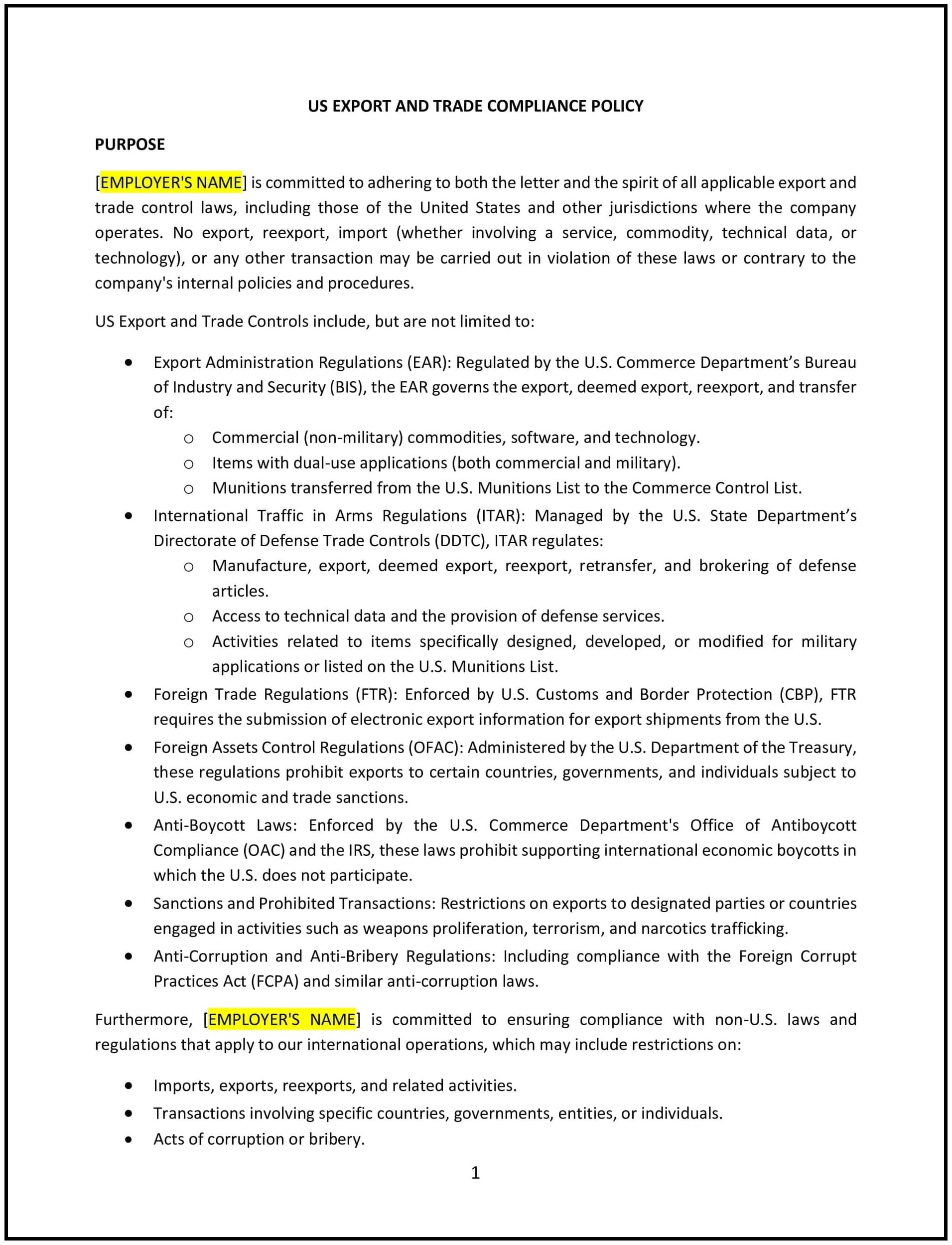US export and trade compliance policy (Wyoming): Free template
Got contracts to review? While you're here for policies, let Cobrief make contract review effortless—start your free review now.

Customize this template for free
US export and trade compliance policy (Wyoming)
In Wyoming, a US export and trade compliance policy provides guidelines for ensuring that businesses adhere to federal regulations governing the export and import of goods, services, and technology. This policy mitigates legal risks, protects national security, and ensures ethical trade practices.
This policy outlines procedures for classifying exports, screening transactions, and maintaining compliance with applicable export control laws and trade sanctions.
How to use this US export and trade compliance policy (Wyoming)
- Define export controls: Clearly specify the scope of export controls, including goods, software, technology, and services subject to federal regulations.
- Establish screening procedures: Include steps for screening transactions, customers, and destinations to ensure compliance with the Export Administration Regulations (EAR) and other applicable laws.
- Outline licensing requirements: Provide guidance on identifying when export licenses are required and how to obtain them.
- Include recordkeeping guidelines: Specify requirements for maintaining accurate and detailed records of export transactions to demonstrate compliance.
- Support compliance: Align the policy with federal laws, such as the EAR, International Traffic in Arms Regulations (ITAR), and Office of Foreign Assets Control (OFAC) regulations.
Benefits of using a US export and trade compliance policy (Wyoming)
A US export and trade compliance policy provides several advantages for Wyoming businesses:
- Enhances compliance: Reduces the risk of violations and penalties by supporting adherence to federal export and trade regulations.
- Protects national security: Prevents unauthorized access to controlled goods, services, or technology.
- Promotes ethical trade: Encourages transparency and integrity in international business dealings.
- Minimizes legal risks: Helps businesses avoid fines, sanctions, or reputational damage due to non-compliance.
- Adapts to local needs: Reflects Wyoming’s role in national and international trade and its unique business landscape.
Tips for using a US export and trade compliance policy (Wyoming)
- Train employees: Provide training on export controls, trade sanctions, and compliance requirements for all relevant personnel.
- Monitor changes in regulations: Stay updated on federal export laws and trade sanctions to ensure ongoing compliance.
- Use technology: Leverage compliance software to streamline transaction screening and documentation processes.
- Assign responsibilities: Designate a compliance officer or team to oversee export activities and enforce the policy.
- Review periodically: Update the policy to reflect changes in regulations, business practices, or export markets.